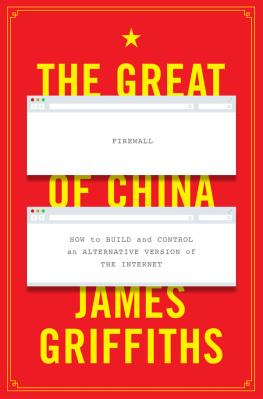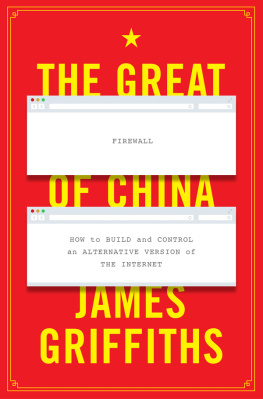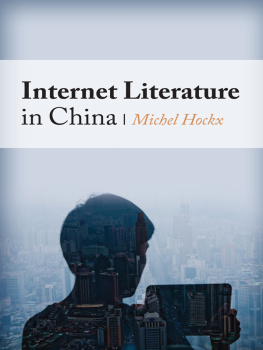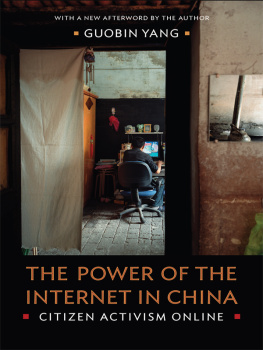Acknowledgments
I would like to thank the following people for their suggestions and encouragement: Professor Tianfang Lei, Christian Hakim, Huang Wenhui, Qi Weihua, Yang Chen, Zhang Wei, Zhong Na, Wang Jing, Firouz Karimpour, Zhu Yu, Corinne and Richard Michel, Nicholas Lachenby, Michaela Minty, Thierry Ragueneau, Professor Wang Peiwen, the editor in Chief of Plante chinois Alain Labat, the translator Herv Dens, Passeport pour la Chine, Montargis China Friendship Association, the Chinese language professors and Chinese cultural associations in France.

The Author
Vronique Michel is a true multilingual netizen. She has spent 25 years abroad (notably in Japan and China) and she obtained diplomas in Asian and European languages. Vronique Michel is a freelance translator and conference speaker on multiculturalism. Please contact the author at for any comments.
Contents


Published by Tuttle Publishing, an imprint of Periplus Editions (HK) Ltd.
www.tuttlepublishing.com
Copyright 2012 Editions Sepia
English edition 2014 Periplus Editions (HK) Ltd
All rights reserved.
ISBN 978-0-8048-4463-9
ISBN 978-1-4629-1518-7 (ebook)
Distributed by:
North America, Latin America & Europe
Tuttle Publishing
364 Innovation Drive,
North Clarendon VT 05759-9436, USA
Tel: 1 (802) 773 8930; Fax: 1 (802) 773 6993
www.tuttlepublishing.com
Japan
Tuttle Publishing
Yaekari Building 3F 5-4-12 Osaki, Shinagawa-ku
Tokyo 141-0032, Japan
Tel: (81) 3 5437 0171; Fax: (81) 3 5437 0755
www.tuttle.co.jp
Asia Pacific
Berkeley Books Pte. Ltd.
61 Tai Seng Avenue #02-12 Singapore 534167
Tel: (65) 6280-1330; Fax: (65) 6280-6290
www.periplus.com
18 17 16 15 14 5 4 3 2 1 1409HP
Printed in Singapore
TUTTLE PUBLISHING is a registered trademark of Tuttle Publishing, a division of Periplus Editions (HK) Ltd.

CHINA ONLINE
Introduction
T his book is a unique journey of discovery into the heart of contemporary China.
The first part sheds light on underground Chinese culture through a range of popular modern-day tribes that flourish on the Internet and reflect the diversification of Chinese society. The reader will discover the thousand-and-one ways leading to Gross Domestic Happiness, as well as the secret of having a harmonious married life.
The second part focuses on the official common language ( ptnghu ) and the ingredients of Chinese humor that create a sense of connectedness among its speakers. We will decode the melodious phonetic puns, the magical spelling of characters, the ingenious numbers that talk, and learn about the cultural intermingling of the Internet with the slang and catch phrases of over 700 million Chinese Web users....
This first exploration has been compiled for the curious amateur, for students as well as experts, such as marketers and communications specialists seeking to understand a fast-evolving country.
Pronunciation Guide
Below are a few elements of pronunciation in pinyin to help the reader. The example most used in schoolbooks is ma . The accent on the pinyin word indicates the pronunciation of the different tones.
| Character | Pinyin | Tone | Meaning |
| m | A high pitched, slightly elongated tone, which sounds like the ahhh a doctor might ask you to say. | mother |
| m | A rising tone, from low to high, as though you were asking the question What? or Why? | hemp |
| m | A falling and then rising tone, as if you were surprised at some announcement and asked, Really? | horse |
| m | A falling tone that drops sharply, as though you were telling someone to Stop! | to scold |
YOUNG PEOPLE IN CHINA TODAY


W hen a woman is pregnant in China she is said to be happy ( yux ): every year more than 15 million babies are born.
To ensure that their baby will be healthy and intelligent, women eat sea fish and walnuts during their pregnancy, the latter because they resemble a human brain. Whether from custom or superstition, parents try to time the year of the birth to coincide with an auspicious sign of the Chinese zodiac. Dragons ( lng ) for instance, symbolize power, so the birth rate tends to increase in Dragon years.

In the same vein, a childs first name is a kind of premonition reflecting the parents aspirations: grace, beauty, or elegance for girls; strength, perseverance, and success in the case of boys.
On the babys first birthday celebration, it is customary to present the child with a variety of objects for it to seize ( zhuzh ) to identify its tastes and future potential. These may include a laptop, a violin, a book, or a banknote, in the hope of divining that the child may one day become a computer engineer, a musician, a successful writer, or a businessperson.


In playschool the child will start learning several disciplines such as music, painting, singing, foreign languages, and dancing. The aim is to discover and nurture the childs potential as early as possible in a highly competitive environment.
School is mandatory and free for the first nine years, but any additional expenses (such as books and uniforms) are paid for by the parents. If they have the means, it is advised to give a financial contribution to the school.
In primary school, the little cherub will learn Chinese characters and copy them out assiduously. The verb to copy in Chinese language also means to learn ( xu ) . By extension copying ones teacher is a way of showing respect.

Discipline is the norm. Pupils rise when adults enter the room. They are divided into small groups and take it in turns to clean the classroom. They raise the flag every Monday and practice gymnastics in the morning. Every year on September 10, they celebrate Teachers Day to express their gratitude.
Just like the Western adage promoting a healthy mind in a healthy body, the good student must achieve the Three Perfections known as 3H, or the snho (the H for ho meaning good). These stand for perfect morality ( pnd ), good results ( chngj ), and good at sports ( ty ). Teachers and pupils use those criteria to select the best in class. It is also well-regarded to take part in extracurricular activities, since it demonstrates the ability to socialize.
Next page
















